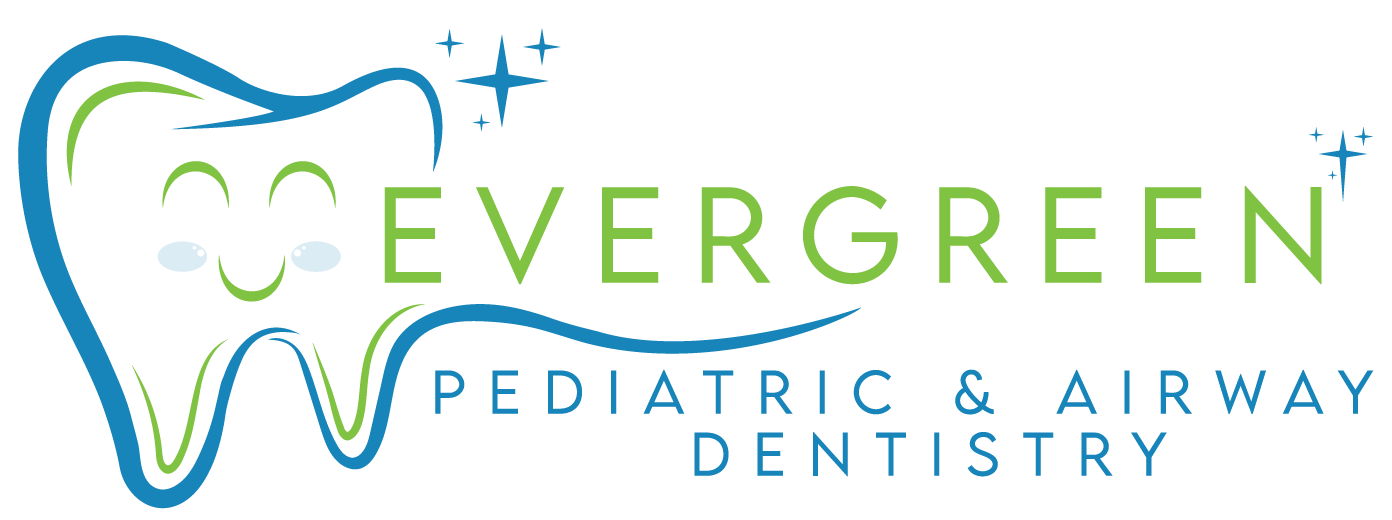Understanding Sleep Apnea: Causes, Symptoms, and Treatment Options
Do you often wake up feeling exhausted, despite getting a full night’s rest? Or maybe your partner is constantly complaining about your loud snoring and pauses in breathing while sleeping. These could be signs of a serious medical condition known as sleep apnea. While it may seem harmless at first, untreated sleep apnea can have severe consequences on both our physical and mental health. In this comprehensive guide, we will dive into everything you need to know about sleep apnea: from its causes and symptoms to the available treatment options that can help manage this condition. So if you or someone you know is struggling with poor sleep quality, keep reading to gain a better understanding of this disorder and how it can be effectively managed for improved overall well-being.

Sleep Apnea
What is sleep apnea and how does it affect the body
When it comes to sleep apnea, it may be a term that is widely heard, but not everyone knows exactly what it means. Sleep apnea is a sleep disorder characterized by interrupted breathing during sleep. Individuals with sleep apnea experience periods throughout the night when their breathing stops or becomes very shallow. These pauses can last anywhere from a few seconds to minutes, resulting in inadequate oxygenation of the blood. This lack of oxygen triggers the brain to briefly wake the individual to reopen their airway, often resulting in a loud gasp or snore. This can occur dozens, or even hundreds, of times every night, leading to significant sleep disruption and a host of negative health consequences.
There are three types of sleep apnea, each having its unique cause and form of treatment. Obstructive sleep apnea (OSA) is the most common type and is caused by the relaxation of the muscles in the throat, leading to a blocked airway. Central sleep apnea (CSA) is less common and results from the inability of the brain to signal your muscles to breathe, while mixed sleep apnea is a combination of both obstructive and central sleep apnea. Although OSA and CSA can coexist, most individuals with sleep apnea have obstructive sleep apnea. It is essential to get a proper diagnosis as treatment options may vary depending on the type and severity of sleep apnea. Regardless of the type, if left untreated, sleep apnea can have far-reaching consequences on one’s health, from daytime fatigue and mental impairment to an increased risk of high blood pressure, cardiovascular disease, and stroke.
Common causes of sleep apnea
Sleep apnea is a common sleep disorder that can disrupt one’s quality of rest. One of the most common causes of sleep apnea is physical factors. Excess weight and a narrow airway can both contribute to sleep apnea. When someone is overweight, the fat deposits around the neck can increase the pressure on the airway, making it more difficult to breathe during sleep. The narrow or blocked airway can also cause the soft tissues in the back of the throat to vibrate, which is known as snoring. This vibration can create enough turbulence in the airflow to cause a partial or complete obstruction of the airway.
Another common cause of sleep apnea is lifestyle habits. Smoking and alcohol consumption are two habits that can increase the risk of developing sleep apnea. Smoking irritates the air passages, causing inflammation and increasing the likelihood of obstruction of the airway. Similarly, alcohol consumption can relax the muscles in the throat, which can lead to an obstruction of the airway during sleep. It is important to note that while lifestyle habits can contribute to sleep apnea, they are not the only cause. Other factors, such as age and genetics, can also play a role. Regardless of the cause, sleep apnea can have serious consequences on one’s health and quality of life, making it essential to seek proper diagnosis and treatment.
In conclusion, sleep apnea is a common sleep disorder that can be caused by various factors. Physical factors, such as excess weight and a narrow airway, can contribute to the development of sleep apnea. Similarly, lifestyle habits, including smoking and alcohol consumption, can also increase the risk of developing this sleep disorder. It is important to take steps to prevent or manage sleep apnea, as it can affect both physical and mental health. By identifying and addressing the underlying causes of sleep apnea, people can enjoy better sleep and overall well-being.

Cause of Sleep Disordered Breathing
Symptoms of sleep apnea
Sleep apnea is a common sleep disorder that affects millions of people worldwide. One of the significant symptoms of sleep apnea is daytime fatigue and drowsiness. People with sleep apnea often have disrupted sleep patterns because their breathing repeatedly stops and starts during sleep. This can lead to inadequate sleep quality, which causes daytime fatigue, excessive sleepiness, and drowsiness. This can be especially dangerous if they are operating machinery, driving, or performing other tasks where concentration is required. It can also impact daily activities and job performance, causing a considerable reduction in the quality of life.
Another prominent symptom of sleep apnea is loud snoring and gasping for air during sleep. Snoring is often a common occurrence during sleep, but if it is loud and occurs regularly, it could be an indication of sleep apnea. When the airway becomes blocked or narrowed, it can cause snoring. This can also lead to gasping for air when the person tries to breathe through a blocked airway, which is another significant symptom of sleep apnea. Loud snoring and gasping for air during sleep can significantly impact sleep quality, both for the person experiencing the symptoms and for anyone sleeping nearby. This is why it is crucial to get evaluated and treated early to avoid further complications, such as cardiovascular problems and depression.
Additionally, headaches in the morning are also a major symptom of sleep apnea. Researchers believe that headaches occur in the morning because of low oxygen levels during the night. The frequent stopping and starting of breathing during sleep can lead to a drop in oxygen levels, which in turn causes headaches in the morning. These headaches can be so severe that they can affect the person’s daily routine. It is, therefore, essential to seek medical attention if you experience morning headaches along with other symptoms of sleep apnea. Treatment options, such as continuous positive airway pressure therapy and lifestyle changes, can provide immense relief and improve the overall quality of life.
The link between untreated sleep apnea and health problems
Untreated sleep apnea can lead to several health problems that can have severe impacts on an individual’s daily life. One of the most common and widely researched links to untreated sleep apnea is high blood pressure. This happens because as individuals with sleep apnea experience episodes of breathing interruptions during sleep, their body’s oxygen levels lower, which triggers a response to release stress hormones. These hormones can narrow blood vessels and raise blood pressure, which can result in hypertension over time. Long-term high blood pressure can cause damage to the arteries, heart, kidneys, and other organs in the body.
Moreover, untreated sleep apnea can also lead to an increased risk of heart disease. Several studies have found that individuals with sleep apnea are more susceptible to heart disease and heart attacks. This is due to the irregular breathing patterns that occur during sleep apnea episodes, which can cause a significant increase in blood pressure and stress on the heart. The lack of oxygen that occurs during breathing interruptions can also strain the heart and lead to an arrhythmia, a condition where there is an irregular beating pattern in the heart. It is crucial to note that even individuals who do not have pre-existing heart conditions can develop heart disease due to untreated sleep apnea, making it a significant risk factor.
Furthermore, with the increasing number of people diagnosed with diabetes worldwide, it is vital to understand that untreated sleep apnea can also impact the development of diabetes. Studies have shown that individuals with sleep apnea are more likely to develop insulin resistance, a condition where the body does not respond effectively to insulin, leading to high blood sugar levels and eventual diabetes. This is because the lack of oxygen supply during breathing interruptions can cause the body to release stress hormones, which can interfere with insulin production and regulation. Diabetes can have severe implications on an individual’s health, such as damage to eyesight, kidneys, and other organs, making it essential to address sleep apnea as a risk factor.

Cause of Sleep Apnea
Treatment options for sleep apnea
Sleep apnea is a medical condition that affects millions of people worldwide. Patients suffering from sleep apnea experience breathing difficulties during sleep, which may result in a range of symptoms such as irregular snoring, daytime sleepiness, and fatigue. If left untreated, sleep apnea can increase the risk of developing severe health problems such as heart disease, stroke, and high blood pressure.
One of the most popular treatment options for sleep apnea is the CPAP machine. CPAP stands for Continuous Positive airway pressure. This machine consists of a mask that fits over the nose and mouth of the patient. It is connected to a pump that generates pressurized air that helps keep the airways open throughout the night. CPAP therapy is highly effective in reducing the symptoms associated with sleep apnea. It has been shown to help patients experience a better quality of sleep, reduce the risk of developing associated health issues, and improve their overall quality of life. However, as with any medical treatment, CPAP has its limitations, and some patients may find the machine uncomfortable to use, leading to low adherence rates.
Another effective treatment option for sleep apnea is oral appliances. These devices are custom-made to fit the patient’s mouth and are designed to reposition the jaw and tongue to keep the airway open during sleep. Oral appliances are often recommended for patients with mild to moderate sleep apnea, and they are highly effective in reducing snoring, improving airflow, and reducing symptoms such as daytime sleepiness. In addition, oral appliances are considered to be more comfortable and easier to use than CPAP machines, making them a popular alternative for patients who struggle with CPAP adherence.
Finally, lifestyle changes such as weight loss and quitting smoking can also help reduce the severity of sleep apnea. Excess weight and smoking can contribute to the development of sleep apnea by increasing inflammation and narrowing the airways. By focusing on healthy lifestyle changes, patients can significantly reduce the risk of developing sleep apnea and improve their overall health and well-being. Furthermore, recent studies have shown that a combination of lifestyle changes and other treatment options can help patients achieve long-term relief from sleep apnea symptoms. Overall, recognizing the symptoms of sleep apnea and seeking medical treatment is crucial to achieving restful sleep and avoiding serious health problems.
Tips for improving your quality of sleep with or without sleep apnea
Sleep is a fundamental part of our physical and mental health. Whether you have sleep apnea or not, improving the quality of your sleep could significantly enhance your overall well-being. One crucial tip to consider is establishing a bedtime routine. A consistent bedtime routine cues to your body that it is time to unwind and relax, facilitating easier sleep onset. Therefore, it is recommended to establish a regular bedtime and wake-up time and stick to it, even on weekends. Additionally, engaging in relaxing activities such as reading a book or taking a warm bath before bedtime could also help you unwind and prepare for sleep. It is essential to avoid stimulating activities such as scrolling on your phone or watching TV since they may interfere with your ability to fall asleep.
Another significant factor that affects your sleep quality is your bedroom environment. The ideal sleep environment is cool, quiet, and dark. The temperature in your bedroom should be around 60-67°F for optimal sleep. Additionally, considering investing in comfortable pillows and mattresses that support your sleeping posture and do not trigger allergies or asthma. Finally, you may also want to remove anything that causes distractions in your bedroom or interferes with your sleep, such as electronic devices or clutter. Ensuring these environmental factors are in line could significantly improve the quality of your sleep. Overall, by taking these steps, you can improve your sleep quality, leading to better health outcomes and general well-being.
In conclusion, sleep apnea is a serious sleep disorder that can have significant impacts on an individual’s health and well-being. It occurs when the airway becomes blocked during sleep, resulting in interrupted breathing patterns and decreased oxygen levels in the body. The most common causes of sleep apnea include being overweight or obese, having a narrow airway, and sleeping on your back. If left untreated, it can lead to a range of health problems such as high blood pressure, heart disease, and stroke. However, there are various treatment options available for managing sleep apnea such as continuous positive airway pressure (CPAP) therapy, oral appliances, and surgery. Along with these treatments, incorporating healthy habits like maintaining a consistent sleep schedule and avoiding alcohol and sedatives before bedtime can greatly improve the quality of sleep for individuals with or without sleep apnea. Therefore, it is important to seek medical advice if you suspect you or a loved one may have sleep apnea to prevent potential long-term health consequences and live a healthier life overall. Remember, good quality sleep is essential for our physical and mental well-being – so don’t neglect it! With the right approach and care, managing sleep apnea can greatly improve your overall quality of life.
Evergreen Pediatric Dentistry
https://www.google.com/maps?cid=14720788683151219551
12910 Totem Lake Blvd NE #103, Kirkland, WA 98034, United States
(425) 814-3196
https://evergreenkidsdentist.com/


